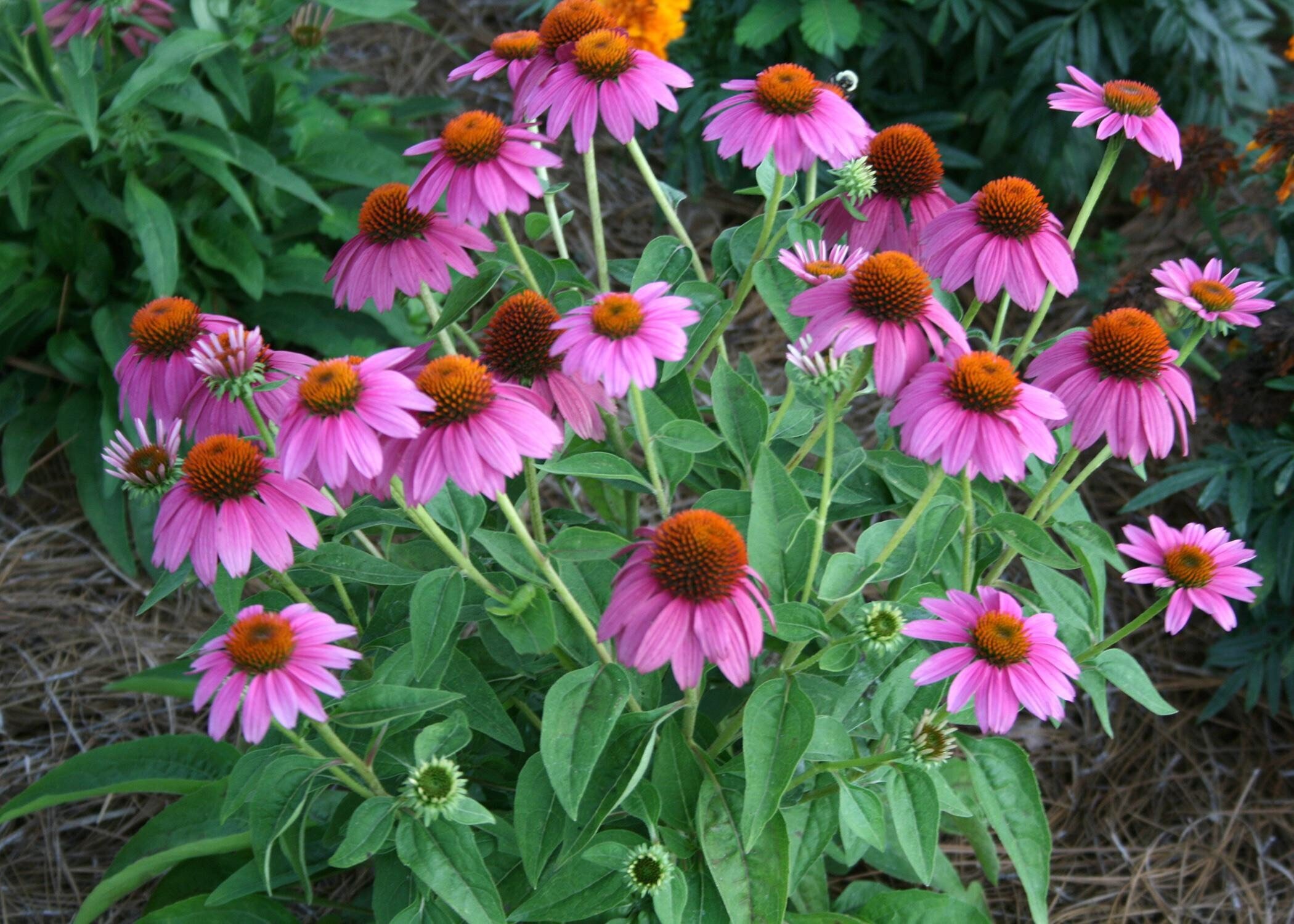 Image 1 of 2
Image 1 of 2

 Image 2 of 2
Image 2 of 2



Purple Coneflower, Echinacea purpurea, 4in Size Live Plant
$8.50
A popular perennial with smooth, 2-5 ft. stems and long-lasting, lavender flowers. Rough, scattered leaves that become small toward the top of the stem. Flowers occur singly atop the stems and have domed, purplish-brown, spiny centers and drooping, lavender rays. An attractive perennial with purple (rarely white), drooping rays surrounding a spiny, brownish central disk.
The genus name is from the Greek echinos, meaning “hedgehog,” an allusion to the spiny, brownish central disk. The flowers of Echinacea species are used to make an extremely popular herbal tea, purported to help strengthen the immune system; an extract is also available in tablet or liquid form in pharmacies and health food stores. Often cultivated, Purple Coneflower is a showy, easily grown garden plant.
Plant ships in 4in container.
The genus name is from the Greek echinos, meaning “hedgehog,” an allusion to the spiny, brownish central disk. The flowers of Echinacea species are used to make an extremely popular herbal tea, purported to help strengthen the immune system; an extract is also available in tablet or liquid form in pharmacies and health food stores. Often cultivated, Purple Coneflower is a showy, easily grown garden plant.
Plant ships in 4in container.
Quantity:
Add To Cart
A popular perennial with smooth, 2-5 ft. stems and long-lasting, lavender flowers. Rough, scattered leaves that become small toward the top of the stem. Flowers occur singly atop the stems and have domed, purplish-brown, spiny centers and drooping, lavender rays. An attractive perennial with purple (rarely white), drooping rays surrounding a spiny, brownish central disk.
The genus name is from the Greek echinos, meaning “hedgehog,” an allusion to the spiny, brownish central disk. The flowers of Echinacea species are used to make an extremely popular herbal tea, purported to help strengthen the immune system; an extract is also available in tablet or liquid form in pharmacies and health food stores. Often cultivated, Purple Coneflower is a showy, easily grown garden plant.
Plant ships in 4in container.
The genus name is from the Greek echinos, meaning “hedgehog,” an allusion to the spiny, brownish central disk. The flowers of Echinacea species are used to make an extremely popular herbal tea, purported to help strengthen the immune system; an extract is also available in tablet or liquid form in pharmacies and health food stores. Often cultivated, Purple Coneflower is a showy, easily grown garden plant.
Plant ships in 4in container.
A popular perennial with smooth, 2-5 ft. stems and long-lasting, lavender flowers. Rough, scattered leaves that become small toward the top of the stem. Flowers occur singly atop the stems and have domed, purplish-brown, spiny centers and drooping, lavender rays. An attractive perennial with purple (rarely white), drooping rays surrounding a spiny, brownish central disk.
The genus name is from the Greek echinos, meaning “hedgehog,” an allusion to the spiny, brownish central disk. The flowers of Echinacea species are used to make an extremely popular herbal tea, purported to help strengthen the immune system; an extract is also available in tablet or liquid form in pharmacies and health food stores. Often cultivated, Purple Coneflower is a showy, easily grown garden plant.
Plant ships in 4in container.
The genus name is from the Greek echinos, meaning “hedgehog,” an allusion to the spiny, brownish central disk. The flowers of Echinacea species are used to make an extremely popular herbal tea, purported to help strengthen the immune system; an extract is also available in tablet or liquid form in pharmacies and health food stores. Often cultivated, Purple Coneflower is a showy, easily grown garden plant.
Plant ships in 4in container.